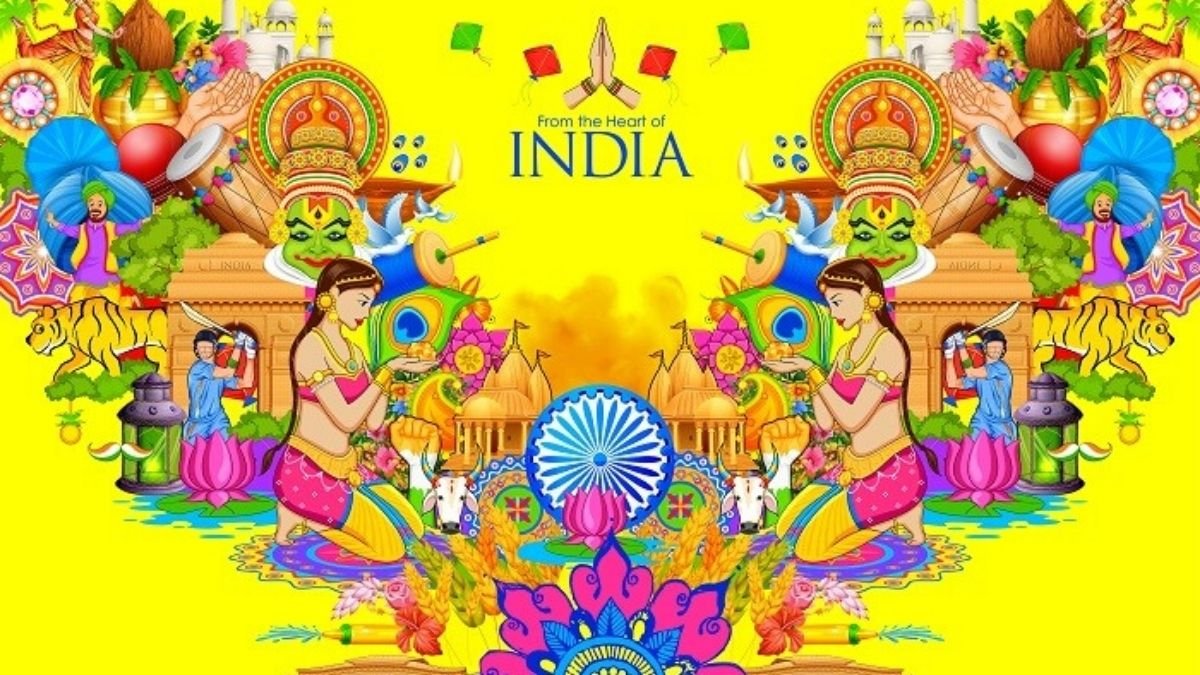The most beautiful aspect of human Global civilization is its diversity and colourful culture. Different languages, religions, traditions and beliefs are part of our identity. But amidst all this diversity, some things bind us together—festivals, food and faith.
When we participate in a festival, perform a religious ritual or taste a cultural dish, we are not just following tradition but strengthening the common thread of humanity that connects us beyond boundaries.
Festivals: Recognizing unity in diversity
Festivals, whether it is Holi and Diwali in India or the Cherry Blossom Festival in Japan, Eid-ul-Fitr or Christmas—the purpose of every festival is not just to celebrate but to connect the community.
- In India, Diwali is not just a festival of lights but a message of victory of light over darkness.
- Brazil’s Rio Carnival brings together tourists from all over the world on one platform with dance and music.
- Thanksgiving in America connects us to the tradition of gratitude.
- Eid exemplifies brotherhood and sharing.
- Festivals teach us that happiness is complete only when we share it.
Food: Beyond taste, a medium to connect souls
Food is not just a means to fill the stomach, it is a symbol of culture, history and tradition. Food has special significance on festivals and religious occasions around the world.
- India’s biryani and seviyan are the hallmarks of Eid.
- Cakes and pastries on Christmas are a symbol of love and sharing across the world.
- Japan’s sushi reflects not only taste but also the art of discipline and presentation.
- Middle East’s hummus and falafel exemplify the culture of sharing thaali.
When we eat food from another country, we experience not only the taste but also their culture and tradition. This makes food the simplest but the deepest medium of global unity.
Faith: From Spirituality to Humanity
Faith is an integral part of every human being’s life. Whether it is the ringing of temple bells, the azan of the mosque, the bells of the church or the peace of Buddhist chants—the core message of every faith is humanity and love.
Religion and faith teach us that humanity is the greatest religion. Despite different worship practices, the core purpose of every faith is the same—to help others, show compassion and live together.
The shared connection between festivals, food and faith
If we observe, food and faith are deeply connected in every festival of the world.
- Both fasting and bhog in Navratri are a confluence of faith and food.
- Thanksgiving dinner is an occasion to express gratitude to God and share food with family.
- The fast of Eid teaches self-restraint and adds the tradition of sharing seviyaan.
- The special dishes made in oil in Hanukkah are a confluence of faith and taste.
This connection makes us realize that faith is not only spiritual, it also resides in our plates, our taste buds and our lifestyle.
Celebrations beyond borders
In today’s time, globalization has taken festivals and food out of borders.
- People in India have started celebrating Halloween and Valentine’s Day.
- The color of Diwali and Holi is spreading in America and Europe.
- Japanese sushi and Korean kimchi are now on the menu cards all over the world.
- This exchange has taught us that culture has no passport.
Contribution to tourism and global interaction
Festivals and food are not only cultural identity, but also a big means of tourism and economy.
- Rio Carnival attracts millions of tourists every year.
- India’s Kumbh Mela is the largest cultural gathering along with religious devotion.
- Japan’s cherry blossom season is a center of attraction not only for local but also for foreign tourists.
All this shows that faith and celebrations are not only religious, but also carriers of economic and social development.
Digital age and festivals
In today’s world, social media and the Internet have given a global platform to festivals and cultural events.
- With one click, we can watch Dubai’s Eid celebrations.
- With live streaming, we can experience Kashi’s Ganga Aarti.
- Food vlogs on Instagram and YouTube introduce us to cuisines from different countries.
This digital connectivity has further strengthened the sense of global unity.
Challenges and solutions
Although diversity and global unity are beautiful, there are challenges in front of it too—
- Religious intolerance
- Cultural conflict
- Disputes over food
- The tussle between modernity and tradition
The only way to deal with these is mutual respect and understanding. Only when we respect each other’s culture, a truly global society can be created.
Message for global unity
Festivals, food and faith teach us that even though our languages, clothes, customs are different, our emotions and core values are the same.
- Every religion gives the message of love and brotherhood.
- Every festival teaches us the habit of sharing.
- Every food becomes a medium to connect us.
- This is why these three together bind human civilization in one thread.
Conclusion
Festivals, food and faith—these three pillars not only identify our culture but also form the foundation of global unity.
When we light the lamps of Diwali, distribute sevaiyan on Eid, cut a cake on Christmas or eat sushi at a Japanese festival—we do not just follow tradition but celebrate humanity.
